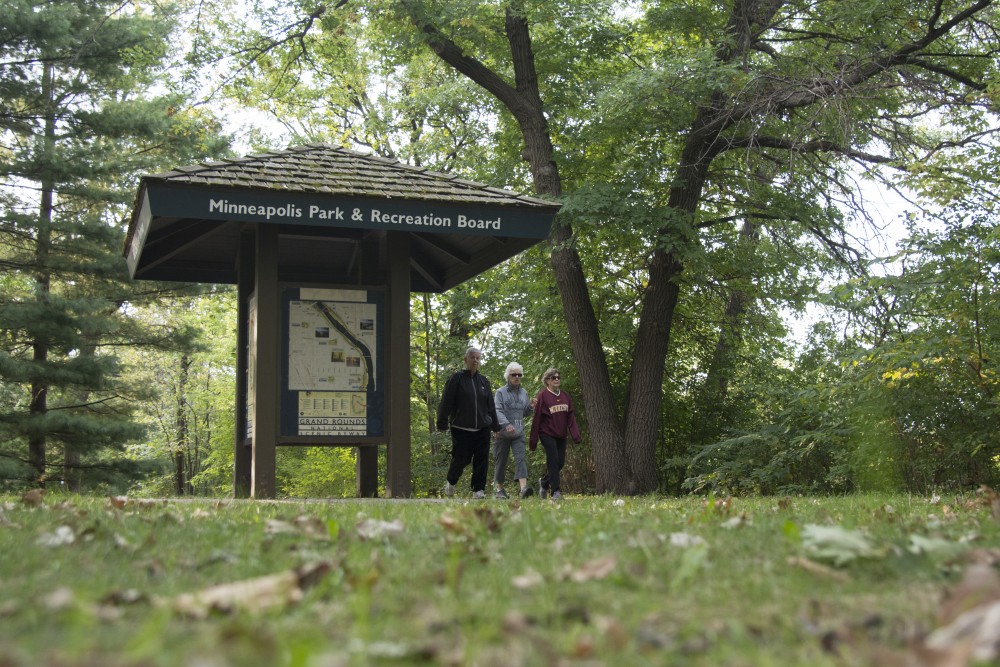A historic bike and pedestrian trail in Minneapolis could receive funding to begin completion of its “missing link” through campus neighborhoods.
Gov. Tim Walz announced his $2 billion 2020 capital bonding proposal for construction projects across the state last month, including $12.35 million to go toward completing the Grand Rounds National Scenic Byway trail. The Minneapolis Park and Recreation Board has long advocated for funding to complete the trail’s last remaining segment, which goes through Prospect Park and Southeast Como.
“By funding the missing link of the Grand Rounds, Governor Walz is helping [Minneapolis] accomplish a century-old transit goal,” said Minneapolis Mayor Jacob Frey. “A Grand Rounds should be grand and round. No sudden dead ends, no unlinked gaps.”
The 140-year-old Grand Rounds is a connected series of parks that would, once completed, create an approximate circular path throughout the city of Minneapolis. The three miles connecting Prospect Park to Como to the Mississippi River, also called the “Bridal Veil Trail,” would complete the network.
Representatives from the University of Minnesota, the Towerside Innovation District and MPRB have formed a task force to promote Walz’s proposal to lawmakers as they craft their own bonding proposals.
The task force is currently looking to fundraise $40,000 to conduct a feasibility study looking at a possible crossing over the train tracks between Malcolm Avenue Southeast and Kasota Avenue Southeast in Como.
“The team includes structural engineering, civil engineering and traffic engineering to ask [and] answer basic questions about the type of bridge that we could expect to see and its basic structure,” said University Design Center senior research fellow Bruce Jacobson, who is working on the project. “We can start to answer questions about cost and who would own it, who would maintain it, and other kinds of design elements.”
Having this information would help convince lawmakers to get on board with the project, said MPRB Commissioner Chris Meyer.
“We have a little bit of a chicken and egg problem because some legislators want to have a better idea of where the bridge is going to go before they want to commit to phase one,” Meyer said.
The money from Walz’s proposal would go toward phase one of the completion project. Phase one includes a comprehensive study to determine where the bridge will be constructed. The proposal would also fund trail amenities like trees, land and benches.
Meyer said Walz’s proposed funding was a “victory” for the park board after the project went unfunded in then-Gov. Mark Dayton’s 2018 bonding recommendation.
“If the governor had not made his recommendation, that may not have sparked the Towerside Innovation District’s action,” Meyer said. “So, it’s really meaningful that the governor made that recommendation, and it is turning this project that a lot of people had previously given up on into a reality.”














